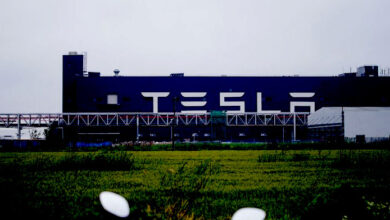Talen Urges US Regulators to Dismiss Challenge to Amazon Data Center Agreement

Introduction
In the ever-evolving landscape of technology and energy, partnerships that drive innovation and efficiency are crucial. Recently, Talen Energy made headlines by entering into a significant deal with Amazon for a data center powered by nuclear energy. However, this agreement has faced challenges from several electric utilities. In this article, we will explore the intricacies of this deal, the objections raised, and the potential implications for the industry and consumers.
Background of Talen Energy
History and Operations
Talen Energy, a prominent player in the energy sector, has a rich history of providing reliable power across the United States. Established with a commitment to sustainability and innovation, Talen operates a diverse portfolio of power plants, including nuclear, coal, and natural gas facilities.
Role in the Energy Market
Talen’s strategic positioning in the energy market allows it to leverage various energy sources to meet the growing demands of modern infrastructure. The company’s ability to adapt and innovate has made it a key player in the energy transition, focusing on cleaner and more efficient power generation methods.
Overview of Amazon Data Centers
Importance of Data Centers
Data centers are the backbone of the digital age, housing the vast amounts of information that power everything from social media to cloud computing. These facilities require substantial energy to maintain operations and ensure data security and accessibility.
Amazon’s Data Center Network
Amazon, through its subsidiary Amazon Web Services (AWS), operates one of the largest networks of data centers globally. These centers are pivotal in delivering the cloud services that millions of businesses and individuals rely on daily.
The Deal Between Talen and Amazon
Details of the Agreement
In March, Talen Energy announced an agreement to provide electricity and a data center campus located at its Pennsylvania nuclear power plant to Amazon Web Services. This deal includes an electric capacity of up to 960 megawatts, enough to power about a million homes.
Benefits for Both Parties
This partnership offers significant advantages. For Amazon, it ensures a reliable and substantial power supply for its data centers, crucial for maintaining its services. For Talen, it represents a strategic move into the burgeoning data center market, promising long-term revenue and operational stability.
Challenges to the Deal
Opposition from Electric Utilities
The deal has not gone unchallenged. A group of electric utilities, including American Electric Power (AEP) and Exelon, have voiced concerns about the potential impact on power bills and grid reliability.
Concerns Raised by American Electric Power and Exelon
These utilities argue that the interconnection agreement could lead to a $140 million per year cost shift to everyday ratepayers. They contend that such a shift would unfairly burden consumers with costs that do not benefit them directly.
Talen’s Response to the Challenge
Defense of the Agreement
In its filing with the Federal Energy Regulatory Commission (FERC), Talen strongly defended the deal, labeling the utilities’ challenge as inaccurate. Talen argued that the agreement would not lead to spiking power costs or grid reliability issues.
Arguments Against the Opposition
Talen claimed that the challenge was an unlawful attempt to disrupt a limited interconnection service agreement amendment proceeding. The company emphasized that the utilities had no stake in this proceeding and were trying to turn it into a national referendum on data center load.
Impact on Power Bills and Grid Reliability
Analysis of the Potential Effects
One of the primary concerns is the potential impact on power bills and grid reliability. Opponents argue that the deal could result in higher costs for consumers and potential disruptions in power supply.
Talen’s Assurances
Talen has assured regulators that these concerns are unfounded. The company argues that the agreement is structured to prevent any negative impact on consumers or grid stability.
The Role of Nuclear Energy in Data Centers
Advantages of Nuclear Power
Nuclear energy, being virtually carbon-free and providing round-the-clock power, has become an attractive option for powering data centers. Its reliability and sustainability make it an ideal choice for companies like Amazon that require massive amounts of energy.
Amazon’s Strategic Move
Amazon’s decision to partner with Talen and utilize nuclear power reflects its commitment to sustainability and innovation. This move aligns with Amazon’s broader goal of reducing its carbon footprint and enhancing operational efficiency.
FERC’s Role and Decision
Federal Energy Regulatory Commission’s Involvement
The Federal Energy Regulatory Commission (FERC) plays a crucial role in regulating and overseeing such agreements. The commission’s decision on this matter could set a significant precedent for future deals between power companies and data centers.
Potential Outcomes and Implications
The outcome of FERC’s decision will have far-reaching implications. If the commission sides with Talen, it could pave the way for more such collaborations, fostering innovation in the energy and tech sectors. Conversely, a decision in favor of the utilities could hinder future deals and impact the growth of data centers.
Implications for the Data Center Industry
Precedent-Setting Nature of the Decision
FERC’s decision will likely set a precedent for similar deals in the future. A favorable outcome for Talen could encourage more partnerships between data centers and power plants, streamlining the interconnection process and reducing delays.
Future of Data Center and Power Plant Collaborations
Such collaborations are essential for the rapid deployment of data centers, which are critical for supporting the digital infrastructure. Streamlined agreements could lead to quicker implementation and operational efficiency.
Potential Economic Impact
Job Creation and Local Economy Boost
The deal between Talen and Amazon has the potential to create jobs and boost the local economy. The construction and operation of the data center will require a skilled workforce, contributing to economic growth in the region.
Long-Term Benefits vs. Short-Term Costs
While there may be short-term costs associated with the deal, the long-term benefits, including job creation, economic growth, and enhanced energy infrastructure, outweigh these concerns.
Environmental Considerations
Sustainability of Nuclear Power
Nuclear power is a key player in the transition to sustainable energy. Its low carbon footprint and ability to provide consistent power make it a valuable asset in efforts to combat climate change.
Amazon’s Commitment to Green Energy
Amazon’s investment in nuclear-powered data centers underscores its commitment to green energy. The company has been actively pursuing renewable energy sources to power its operations, aligning with its sustainability goals.
Stakeholder Perspectives
Views of the Local Community
Local communities often have mixed reactions to such deals. While some may be concerned about potential disruptions, others welcome the economic benefits and job opportunities.
Opinions from Industry Experts
Industry experts generally view the deal as a positive step towards integrating sustainable energy solutions into tech infrastructure. They highlight the potential for innovation and efficiency gains.
Conclusion
The deal between Talen Energy and Amazon represents a significant milestone in the intersection of technology and energy. While facing challenges from electric utilities, Talen remains steadfast in its defense, emphasizing the long-term benefits of the agreement. The decision by FERC will be pivotal, potentially setting a precedent for future collaborations and shaping the future of data center infrastructure. As we await the outcome, the focus remains on balancing innovation with consumer interests and environmental sustainability.
FAQs
- What is the Talen and Amazon deal about?
- Talen Energy has entered into an agreement to provide electricity and a data center campus located at its Pennsylvania nuclear power plant to Amazon Web Services.
- Why are electric utilities opposing the deal?
- Electric utilities, including American Electric Power and Exelon, argue that the interconnection agreement could lead to a $140 million per year cost shift to everyday ratepayers.
- How does Talen defend the agreement?
- Talen argues that the challenge is inaccurate and that the agreement would not lead to spiking power costs or grid reliability issues.
- What role does nuclear energy play in this deal?
- Nuclear energy, being virtually carbon-free and providing round-the-clock power, is an attractive option for powering Amazon’s data centers.
- What are the potential implications of FERC’s decision?
- The decision could set a precedent for future deals between power companies and data centers, impacting the growth and innovation in these sectors.





